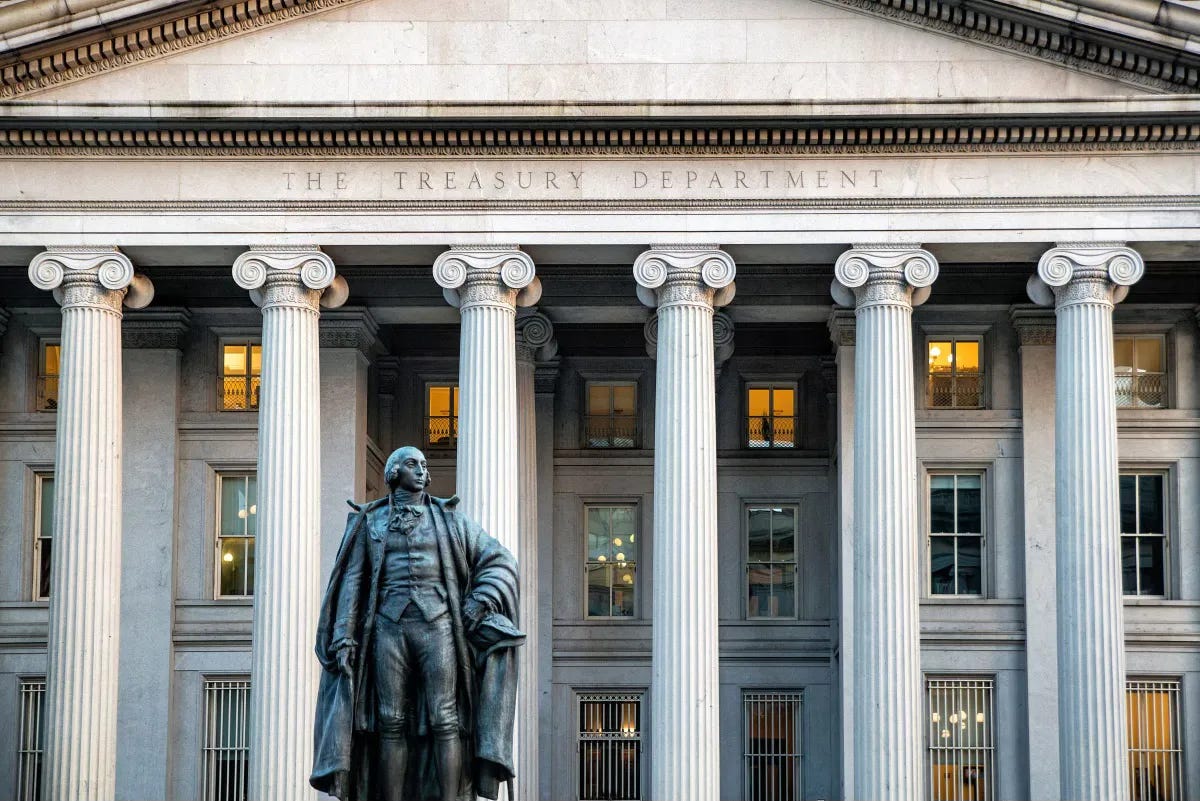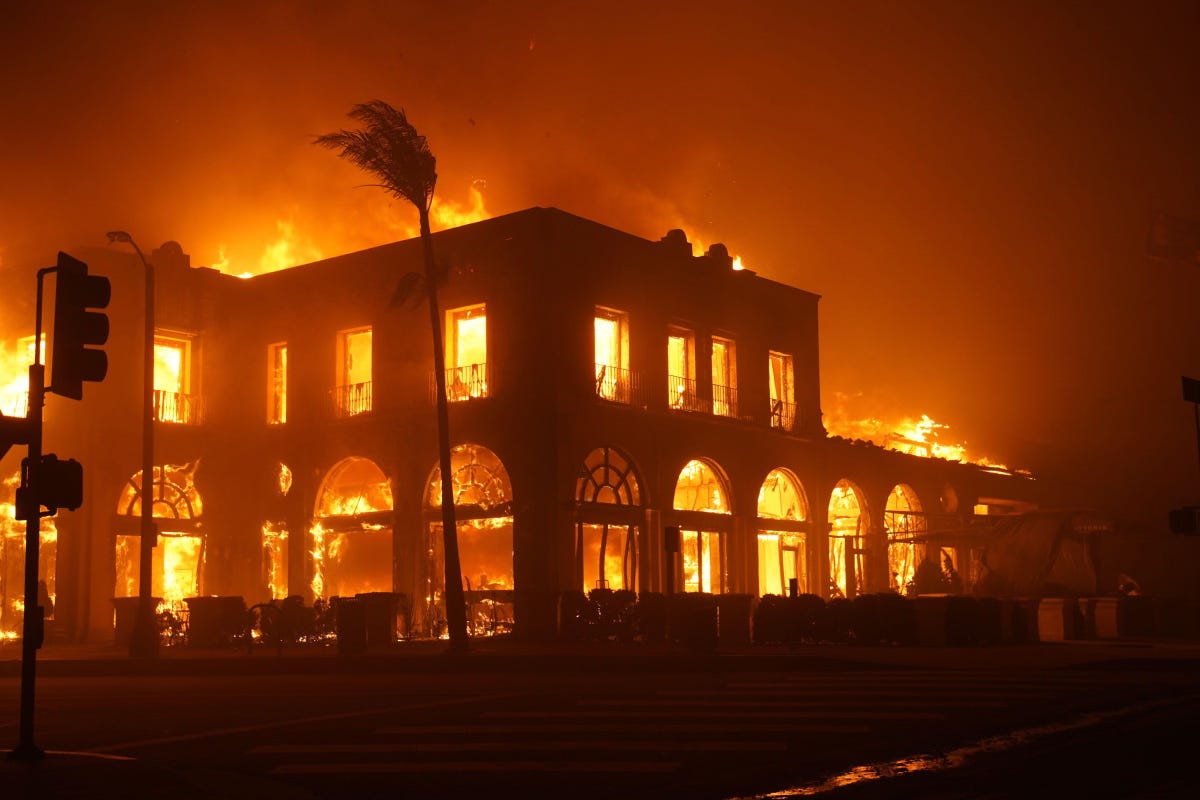
South Korea is attempting to draw a line under six weeks of political chaos, that have severely tested the country’s fragile democratic institutions, after its president Yoon Suk Yeol was finally arrested early this morning.
Thousands of police officers surrounded Yoon’s residence in Seoul while investigators scaled barricades and cut through barbed wire to take him into custody because of allegations that he led an insurrection, a crime punishable by life imprisonment or even death.
The 64-year-old’s short-lived declaration of martial law in December triggered widespread public outrage and protests, plunging the country into its biggest political crisis in decades.
Parliament promptly voted to impeach him over the decree, stripping him of his presidential powers, but for weeks, corruption investigators have failed to detain Yoon, who barricaded himself into his residence. Outside of his gates, die-hard supporters have stood guard, vowing to protect him, while rival protesters have gathered to demand his arrest.
Now, an impeachment trial and criminal proceedings against Yoon are set to begin.
The weeks of uncertainty points to a wider dysfunction in South Korea’s deeply polarised political culture. In The Times today, Richard Lloyd Parry points to the extraordinarily high disaster rate among South Korean presidents. None, except for Yoon’s predecessor, Moon Jae-in, has a posthumous legacy unstained by scandal or violence. “One was shunted into exile, one was assassinated, one was sentenced to death (but later pardoned), one jumped to his death from a cliff and four — before Yoon — have gone to prison.”
Yoon’s failed coup attempt has put at stake much of the progress that the nation he presides over has strived very hard to achieve.
It has, for instance, jeopardised Seoul’s remarkable economic rise. That South Koreans have built the 12th richest country in the world is extraordinary when we remember that in the aftermath of the Korean War, South Korea was one of the poorest economies on the planet. According to Cebr, in 1953, its GDP per capita was lower than those of Somalia and Haiti. The economy was almost entirely dependent on foreign aid and only a fifth of Koreans were literate while the majority lived in poverty. In recent weeks, the considerable uncertainty caused by the standoff between the governing and opposition parties has caused the country’s currency, the won, to plunge to its lowest level in 16 years.
Similarly, it’s important to remember that South Korea was a dictatorship until as recently as 1987. And the weeks-long political paralysis has put at stake the country’s hard-won reputation as a vibrant liberal democracy.
Then again, the ultimate failure of Yoon’s attempted coup is evidence that Seoul has indeed managed to establish robust democratic institutions.
It’s striking that, in addition to large swathes of the public and opposition parties rallying to defend democracy, South Korea’s military, particularly its ordinary rank and file members, also appeared not to share the president’s authoritarian instincts.
While the country’s Defence Minister Kim Yong-hyun enthusiastically supported the martial law order, as Josh Nilsson-Wright pointed out in Engelsberg Ideas, “the bulk of the country’s military, both officers and conscripts, were far more cautious - a reassuring sign that the country’s political culture has become far more unambiguously democratic compared to the authoritarian era of the 1970s and 1980s.”
The local commander sent to manage the special forces dispatched to the National Assembly, for instance, reportedly ordered that no live ammunition be provided to the troops and instructed his forces to refrain from using violence against National Assembly members.
Seoul’s military aside, that Yoon’s impeachment passed the National Assembly in the first place is because members of his own ruling party put democratic principles above tribal loyalty.
The martial law fiasco has exposed the volatile and seemingly unpredictable nature of South Korean politics. But it has simultaneously demonstrated the nation’s resilience and commitment to democracy.
Caitlin Allen
Deputy Editor
ON REACTION TODAY
Andreas Dombret
Why the US deficit matters
Gerald Warner
Götterdämmerung for California and its liberal delusions
ALSO KNOW
Gaza ceasefire - Following months of talks, Israel and Hamas have reportedly finally reached a ceasefire deal to end 15 months of war in Gaza. Exact details of the agreement - brokered by the US, Qatar and Egypt - are yet to be released.
Inflation dips unexpectedly - A surprise fall in UK inflation to 2.5% raises expectations of interest rate cuts next month. The main drivers of the unexpectedly good figures were falls in hotel prices and a lower rise in airfares.
German economy contracts, again - Germany’s GDP shrunk by 0.2% last year and 0.3% the year before, in the first consecutive annual contraction in more than two decades. Last year’s contraction was mainly driven by a decline in investment, with capital formation and investment in machinery and equipment falling by 2.8% and 5.5%.
Trump should consider Chagos deal - Downing Street said it was “perfectly reasonable for the US administration to consider the detail” of any agreement struck with the Chagos Islands. While Trump hasn’t yet commented on the current deal to maintain a 99 year lease on the UK-US airbase on the territory, the proposal has drawn criticism from a number of UK politicians and incoming Secretary of State Marco Rubio.
ICJ judge named Lebanon’s Prime Minister - Top ICJ judge Nawaf Salam, who presided over South Africa’s case accusing Israel of genocide, was designated Lebanon’s new PM, after the election of President Joseph Aoun. Widely regarded as a reformist, his designation is a blow to Hezbollah and its allies, who supported the incumbent caretaker Najib Mikati.
FIVE THINGS
A spymaster sheikh controls a $1.5 trillion fortune. He wants to use it to dominate AI, writes Bradley Hope in Wired
The other way wealth is unequal, by Tom Clark in Prospect
The big question at the heart of the TikTok case, in Forbes
There are no pure cultures, writes Inanna Hamati-Ataya in Aeon
West must hope Syria’s reinvention is real, says Roger Boyes in The Times




